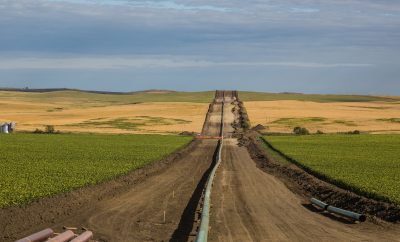 Image courtesy of [Heinrich-Boll-Stiftung via Flickr]
Image courtesy of [Heinrich-Boll-Stiftung via Flickr]
World
Transition of Power in Nigeria Could Mean Global Change
Never before has a sitting president been defeated in a Nigerian election–until now. General Muhammadu Buhari ousted President Goodluck Jonathan in a decisive victory in the country’s latest election, and it is an incredibly momentous event in Nigeria’s history.

Courtesy of Chatham House via Flickr.
Buhari’s All Progressives Congress (APC) won 15,424,921 votes against President Goodluck Jonathan’s People’s Democratic Party (PDP), which won 12,853,162. Since independence from Britain in 1960, there have been numerous coups and many contrived elections–even this election has observers wondering.
President-Elect Buhari, a 72-year-old Muslim from northern Nigeria, won the presidency on his fourth attempt. Previously he ruled the country from January 1984 through August 1985 after taking control through a military coup.
Buhari lead the northwestern states, which have suffered the most by Islamist militant group Boko Haram. In Borno state, one of the worst affected by Islamist violence, Buhari won 94 percent of the vote.
For 16 years, PDP had been in power. This year Nigerians decided that the Opposition should have a go at sorting things out. Nigerians are accustomed to the incumbent fulfilling a second term; something rather big made them change their minds. The keyword is change.
Buhari now has to prove he really can change things. Boko Haram, the economy, and the unceasing cry of corruption are at the forefront of the list.
Boko Haram
Islamist militant group Boko Haram has instilled so much fear in the Nigerian government that the Presidential elections were delayed for six weeks to allow time for the security situation to improve. Its existence is one of the biggest reasons that only 17 percent of Nigerians turned out to vote.
Read More: Boko Haram: How Can Nigeria Stop the Terror?
Boko Haram has been launching military operations since 2009 with the goal of creating an Islamic state in Nigeria. The group is responsible for the death of more than 20,000 Nigerians, and it’s terrorized Northern Nigeria, taken over cities, and infamously kidnapped 200 school girls in April 2014. Many people question the strategy of the Nigerian military, and criticize Jonathan for not challenging this threat.
The Economy
Nigeria is Africa’s leading oil producer, yet more than half of its people live in poverty. The market for stolen oil has increased violence and corruption in the Niger Delta–the home of the industry. Few Nigerians, including those in oil-producing areas, have benefited from the oil wealth.
Read More: The High Cost of Falling Oil Prices
Nigeria was badly hit by the fall in the oil price. Oil represents 90 percent of Nigerian exports and 70 percent of its government revenues; it’s hard to recover from a fall in the oil price. Additionally, the U.S. is no longer importing Nigerian oil because it has had such success in the shale revolution.
Corruption
The contentious issue of corruption undermines the trust in Nigeria’s government. Allegations of deception, fraud, and bribery include security funding, the legality of government officials, and enforcement of policies and elections. Past elections have been tarnished by serious suspicions of rigging. In 2007, observers said the presidential poll was not “credible.” In 2011 the vote was considered better, but fraud still took place.
This time the electoral commission took more steps to prevent rigging, including new biometric voters cards.
These are the changes the Nigerian people–and international community–call for and will be looking at closely. If there are significant advances toward counterterrorism strategy, economic schemes, and financial circulation, as well as more serious crackdowns on corruption, then we could look forward to long-term positive outcomes not only in Nigeria, but globally as well.








Comments